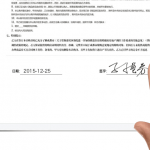CHINA'S inflation rebounded to a four-month high in June, largely due to a lower comparative base, the National Bureau of Statistics said yesterday.
The Consumer Price Index, the main gauge of inflation, rose 2.7 percent from a year earlier, up from May's increase of 2.1 percent.
The lower comparative base, or last June's relatively weak inflation, was said to be the main reason for the rebound, and it was unlikely to become a hurdle for possible easing policies, analysts said.
Yu Qiumei, a senior auditor at the statistics bureau, said price increases were modest in general.
Inflation grew 2.2 percent in June 2012, compared to the gain of 3 percent in May last year.
"The inflationary environment in China remains largely non-existent," Moody's Analytics said in a research note. "Although consumer prices rose year on year, this reflected base effects more than anything as prices were largely unchanged from May, and inflation outside food was low."
Food costs rose 4.9 percent year on year last month, compared with the gain of 3.2 percent in May. Prices of fresh vegetables added 9.7 percent and fruit prices jumped 11.4 percent, while the cost of meat rose 4.8 percent, the statistics bureau said.
Zhou Hao, an economist at Australia and New Zealand Banking Group Ltd, said that despite the unexpected CPI leap in June, his research team maintained its forecast that average inflation in China will be around 2.5 percent for the whole of 2013, much lower than the government target of 3.5 percent.
"We reiterate the view that the monetary authority should anchor its monetary policy based on forward-looking inflation, growth and employment dynamics, and conduct a more accommodative monetary policy, such as lowering the interest rates and even the reserve requirement ratio," Zhou said. "That said, the banking regulator, rather than the central bank, should take more responsibility in disciplining commercial banks' activities."
China's commercial banks almost fell into a credit crisis late last month with numerous reports of a liquidity crunch. It triggered calls for more accommodative policies before the central bank injected cash to quell fears.
In the first half, China's inflation expanded 2.4 percent from a year earlier.
Additional evidence for tamed inflation was the Producer Price Index, the factory-gate measurement of inflation which reflects the CPI's future growth trend.
It still fell 2.7 percent on an annual basis in June, narrowing from May's 2.9 percent.







